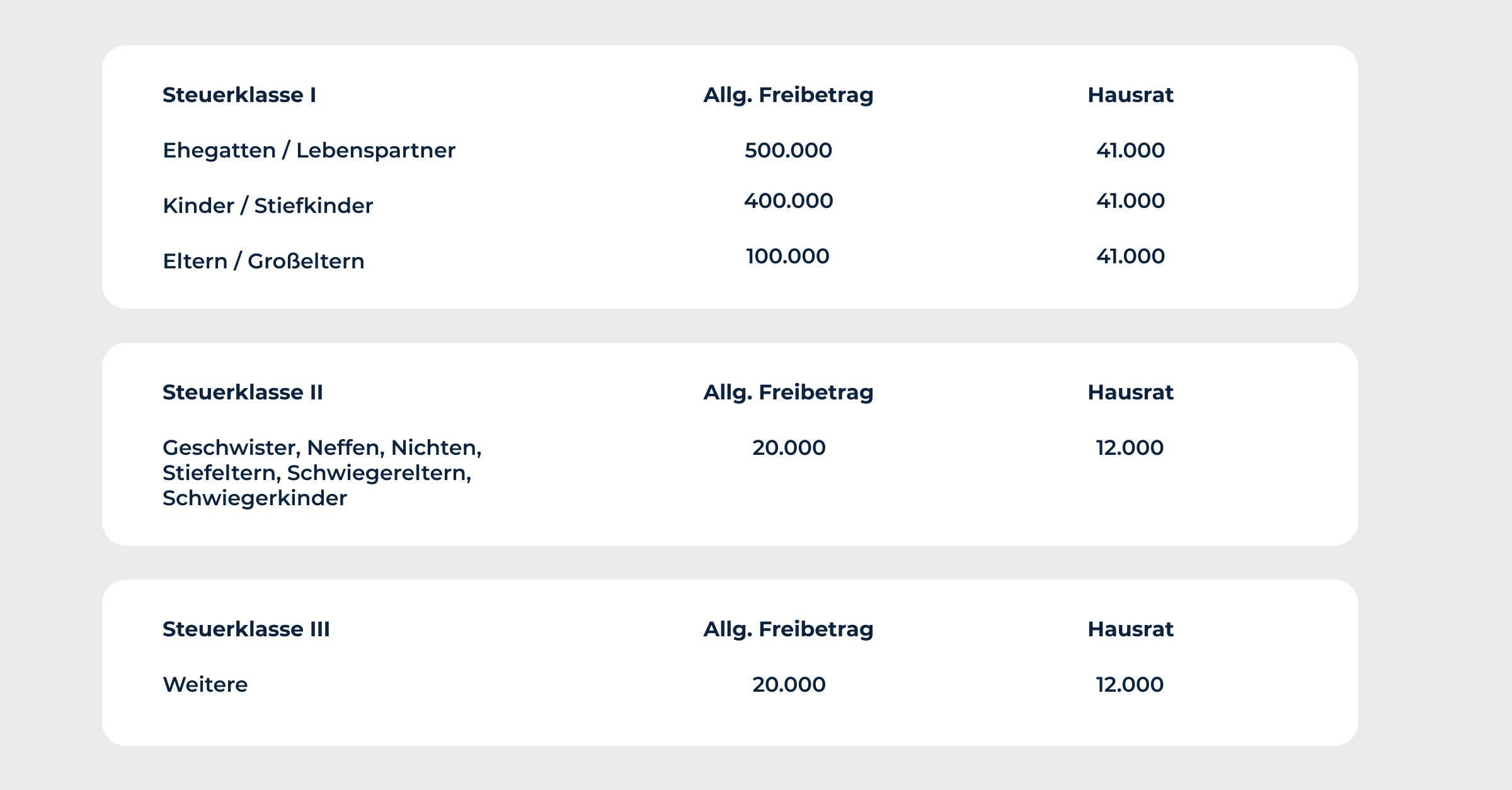A question that is burning in the minds of many horse owners and prospective buyers:
How can I draw up a legally valid gift agreement for a horse, and what points must be taken into account?
In this article, we address this question and guide you step by step through the process of creating such a contract.

Introduction: The gift agreement for a horse and its significance
What is a gift agreement for a horse?
A gift agreement for a horse is a legal document that regulates the transfer of a horse free of charge from one person, the donor, to another person, the recipient.
This contract sets out the terms and conditions agreed between the two parties to ensure that the gift is made smoothly and in accordance with the law.
According to § 516 of the German Civil Code (BGB), a gift is defined as
"A contract whereby one person enriches another at their expense from their own assets."
In the case of a horse, this constitutes such an enrichment, as the value of the horse is transferred from one party to another free of charge.
The creation of a gift agreement for a horse is important for various reasons:
- Legal certainty: The contract clarifies the rights and obligations of the contracting parties, thereby avoiding potential disputes or misunderstandings.
- Proof of donation: A written contract serves as proof of the donation and can be presented to authorities or third parties if necessary.
- Tax considerations: Gifts may be subject to gift tax, and the written agreement may be relevant for calculating and reporting the tax.
Best practices and checklists for gift agreements for horses
Checkliste:
[ ] Identify contracting parties
[ ] Describe the horse clearly
[ ] Regulate transfer of ownership
[ ] Specify assurances and warranties
[ ] Define disclaimers
[ ] Specify withdrawal rights
[ ] Important documents and information about the horse
In the following, we will go into more detail on each of these points.
Why is a gift agreement necessary when donating a horse?
A gift agreement is necessary when gifting a horse for several reasons in order to ensure legal certainty for both the donor and the recipient and to avoid potential problems:
- Clarity and transparency: A written gift agreement ensures that all conditions, agreements, and obligations of both parties are clearly and transparently recorded. This helps to avoid misunderstandings and disputes.
- Legal certainty: A gift agreement legally binds both parties to their rights and obligations. In the event of disagreements or conflicts, the agreement serves as a legal reference point and can be used as a basis for enforcing claims or settling disputes.
- Proof of donation: A written donation agreement serves as proof of the donation and can be presented to authorities, breeding associations, or third parties if necessary. This is particularly important when re-registering the horse or registering it with an animal owners' association.
- Tax stuff: Gifts, including giving a horse, might be subject to gift tax. A written gift agreement helps to document the value of the gift and thus the possible tax burden. In addition, the agreement may be necessary to fulfill tax reporting obligations to the tax office.
- Protection for both parties: A detailed gift agreement can also include provisions on liability exclusions, warranties, and rights of withdrawal that protect both parties in the event of unforeseen events or problems.
For these reasons, it is essential to draw up a gift agreement and to take the relevant aspects into account in order to ensure that the gift of a horse is successful and legally secure.

Legal basis for gift agreements for horses
Requirements for an effective gift agreement for horses
For a horse donation agreement to be valid, certain requirements must be met in order to provide legal protection for both the donor and the recipient:
- Agreement: Both parties, the donor and the recipient, must agree on the gift and intend to make it. This usually takes place through the donor's declaration of offer and the recipient's declaration of acceptance.
- Written form: Although a gift is generally not subject to any formal requirements pursuant to Section 516 of the German Civil Code (BGB), it is advisable for reasons of proof and for the security of both parties to draw up the gift agreement in writing and have it signed by both parties.
- Contracting parties: The identity of the contracting parties must be clearly specified in the contract, including the full names and addresses of the donor and the recipient.
- Description of the horse: The deed of gift should contain a detailed description of the horse, including breed, age, gender, color, pedigree, chip or passport number, and health status. This ensures that the transferred horse can be clearly identified.
- Transfer of ownership: The transfer of ownership of the horse must be regulated in the gift agreement. This includes regulations regarding the handover of the horse, the transfer of the horse's papers, and re-registration with the relevant authorities or associations.
- Representations and warranties: The contract should contain any representations and warranties made by the donor with regard to the horse, for example regarding its health, pedigree, or suitability for specific purposes.
- Disclaimers and limitations of liability: Disclaimers and limitations of liability may be specified in the gift agreement in order to limit the responsibility of the donor or the recipient in the event of damage or defects to the horse.
- Right of withdrawal and cancellation: Any provisions regarding the right of withdrawal or cancellation should be clearly defined in the contract to give both parties the opportunity to withdraw from the contract under certain conditions.
Horse donation agreement: Necessary formalities and documents
Contractual agreement in writing: Although no specific form is required for a gift agreement to be valid, it is advisable to set it out in writing. The written form ensures that all agreements are recorded transparently and also serves as reliable legal evidence. It is essential that both the donor and the recipient sign the contract to confirm their agreement to the specified terms and conditions.
Notarization: Although notarization is not mandatory for gift agreements involving horses, it may be advisable in exceptional cases, such as for particularly valuable animals or complex contractual terms. Involving a notary significantly increases the legal binding force and evidential value of the document.
Registration and transfer with the relevant authorities: Following the successful conclusion of the contract and the handover of the horse, it is the responsibility of the donor and the recipient to clarify all necessary formalities with the relevant institutions and associations. This includes registering the horse with the relevant breeding association and re-registering it with the relevant animal owners' association. Proper re-registration ensures that the new owner is officially listed as the keeper and assumes all associated rights and obligations.
Information on necessary documents and information about the horse
In the case of a gift agreement for a horse, all necessary documents and information about the horse should be provided to the recipient of the gift. This helps to ensure that the recipient receives all relevant information to properly care for and manage the horse.
Below is a list of the most important documents and information required for a gift agreement for a horse.
Identification of the horse
The equine passport (horse passport) is the official document for identifying the horse. It contains information about the horse, such as name, date of birth, gender, breed, color, markings, vaccinations, and deworming. The passport should be presented with the gift agreement and handed over to the recipient of the gift.
proof of descent
For horses with a documented pedigree, a pedigree certificate or pedigree chart should be included. These documents provide information about the horse's parents, their pedigree, and any breeding successes. This is particularly important for breeding horses, as it can influence the value of the horse.
state of health
A current veterinary health check or certificate should be provided to give the recipient information about the horse's state of health. This should include information about any previous illnesses, allergies, medications, or special care requirements.
Proof of vaccination and deworming
It is important that all vaccinations and deworming treatments administered to the horse are documented and presented to the recipient of the gift. This ensures that the recipient is informed about the vaccination status and the schedule for future vaccinations and deworming treatments.
Training and performance records
Information about the horse's training, education, and performance in competitions or shows is helpful in giving the recipient a comprehensive picture of the horse. This includes, among other things, participation certificates, awards, placings, and any license certificates.
insurance documents
If the horse is insured, the insurance documents should be presented to the recipient of the gift. This allows the recipient to take over the existing insurance or take out new insurance if desired.
Care and maintenance instructions
Information about the horse's previous care, feeding, and grooming is very important for the recipient of the gift. Detailed instructions and information about how the horse has been cared for up to now can help ensure a smooth handover and guarantee that the horse continues to be well cared for. This may include information about the type of accommodation (e.g., open stable, box stall), feeding (types of feed, feeding times, feed quantities), care (grooming, hoof care, dental check-ups), and regular exercise program.
Contracts with third parties
If the horse is currently boarded at a boarding stable, receives riding lessons, or is part of a riding partnership, these contracts or agreements should be presented to the recipient of the gift. This allows the recipient to decide whether they wish to take over or terminate these contracts.
Special conditions or requirements
If the horse has special conditions or requirements that are relevant for its future care and keeping, these should be listed in the donation agreement. These include, for example, behavioral characteristics that affect the handling or treatment of the horse, or special dietary requirements.
In summary, it is important that the gift agreement contains all relevant documents and information about the horse. This ensures that the recipient of the gift is informed about the horse's health, pedigree, training, and care, and can care for and manage the horse according to its needs and requirements.
Providing this information also ensures that the recipient of the gift is able to make future decisions regarding the horse on a sound basis of information.
Tax aspects and implications of donating a horse
The transfer of a horse by gift can have various tax consequences that are important for both the donor and the recipient. The following section explains specific tax law aspects that should be taken into account when gifting a horse:
1. Gift tax: In Germany, gifts, including the transfer of a horse, are generally subject to gift tax. The gift tax is calculated based on the market value of the horse and the degree of kinship between the donor and the recipient. However, the law provides for various allowances that vary depending on the closeness of the family relationship. For example, spouses and direct descendants enjoy higher allowances. If the value of the horse does not exceed these allowances, no gift tax is payable.
2. Income tax considerations: For the recipient of the gift, commercial use of the horse, for example in breeding or professional equestrian sports, may have income tax implications. Income from such activities is generally subject to income tax. It is important to note that the gift itself has no impact on income tax, but the resulting economic activities do.
3. Sales tax aspects: By definition, a gift is a transfer made free of charge, which is why in most cases no sales tax is payable. However, if the donor is an entrepreneur and transfers the horse from their business assets, this could be treated as a withdrawal subject to sales tax. A thorough review by a tax advisor is recommended in order to identify any tax obligations.
4. Real estate transfer tax: In the rare case that real estate such as land or stables are also transferred with the horse, additional real estate transfer tax may be incurred. The amount of this tax varies between federal states and depends on the value of the transferred property.
Specific notes:
- Gift tax allowances: For direct descendants, the allowance is €400,000, and for spouses, it is €500,000. For siblings, nephews, and nieces, the allowances are significantly lower.
- Income tax deductibility: Costs incurred in connection with the commercial use of the horse can be claimed as business expenses for tax purposes.
- Sales tax regulations: The regulations governing sales tax on the withdrawal of items from company assets are set out in detail in the Sales Tax Act (UStG).
When donating a horse, there are therefore a number of tax aspects to consider. It is advisable to seek comprehensive advice from a tax advisor or specialist lawyer in order to correctly fulfill all tax obligations and make the most of any potential tax advantages.
What are tax allowances for gifts of horses?
In Germany, gifts are subject to tax allowances based on the degree of kinship between the donor and the recipient. These allowances apply to all types of gifts, including the gift of horses. The allowances are regulated by the Inheritance and Gift Tax Act (ErbStG).
Examples of allowances:
- Gifts to spouses or registered partners: In this case, the exemption amount is €500,000 (Section 16 (1) No. 1 ErbStG). This means that gifts up to this amount are tax-free within a period of ten years. For example, if the horse is worth €20,000, the gift would be tax-free because it does not exceed the €500,000 allowance.
- Gifts to children: For gifts from parents to their children, the allowance is €400,000 (Section 16 (1) No. 2 ErbStG). Here, too, the allowance applies for a period of ten years. If, for example, the horse has a value of €50,000, the gift would also be tax-free, as the allowance of €400,000 is not exceeded.
The allowances are regulated in the following sections of the Inheritance and Gift Tax Act (ErbStG):
- Section 16 (1) ErbStG: Allowances for acquirers (donees)
- Section 19 ErbStG: Allowances for acquisitions due to death (not directly relevant for gifts, but worth mentioning)
It is important to note that the allowances are renewed every ten years, meaning that gifts made within this period are tax-free up to the amount of the respective allowance.
If the value of the gift exceeds the exemption amount, the excess amount is subject to gift tax. Gift tax is calculated according to tax classes, which are also specified in the Inheritance and Gift Tax Act (ErbStG).

Tips and advice for drawing up a horse donation agreement
Here are some tips and pointers for drawing up a legally binding gift agreement for a horse:
- Complete and accurate information: Ensure that the contract includes the full names and addresses of the donor and the recipient. Also provide accurate information about the horse, such as its name, breed, gender, age, color, pedigree, and identification number.
- Intention to donate: Formulate the intention to donate clearly and unambiguously so that there is no doubt about the donor's intention to transfer the horse to the recipient free of charge.
- Handover and transfer of ownership: Describe the time and place of the handover of the horse and the terms of the transfer of ownership. This can be done, for example, by handing over the horse's passport.
- Disclaimer: Add a clause that excludes the donor's liability for defects and health problems of the horse, unless the donor has deliberately concealed them or fraudulently misrepresented them.
- Right of recovery: In the event of a right to recover a gift (e.g., in the case of gross ingratitude on the part of the recipient), this should be mentioned in the contract.
- Severability clause: Add a severability clause stating that if any provision of the contract is invalid or unenforceable, the remaining provisions shall remain unaffected and continue to apply.
- Signatures: The contract must be signed by both parties to be legally valid.
The role of Beglaubigt.de in creating legally binding gift agreements for horses
beglaubigt.de is an online platform that helps you create legally binding contracts and other legal documents. When creating a gift agreement for a horse, Beglaubigt.de can offer the following services:
- Contract templates: Beglaubigt.de can provide you with templates for gift agreements that have been drawn up by lawyers and contain the necessary legal provisions.
- Customization: The platform can help you customize the contract to your individual needs and ensure that it contains all relevant information.
- Legal advice: If you have any legal questions or concerns, Beglaubigt.de can offer you legal advice or refer you to a suitable lawyer.
- Certification and notarization: In some cases, it may be necessary to have the gift agreement certified or notarized by a notary public.

Common mistakes and pitfalls to avoid in gift agreements for horses
- Incomplete or inaccurate description of the horse: An incomplete or inaccurate description of the horse in the contract can lead to misunderstandings and subsequent disputes. Ensure that all relevant information about the horse, such as breed, age, gender, pedigree, health status, and special characteristics, is listed in the contract.
- Lack of provisions regarding costs and responsibilities: It is important to clarify in the contract who is responsible for ongoing costs and obligations (e.g., veterinary costs, insurance, accommodation). Otherwise, this may lead to ambiguities and conflicts between the parties.
- Failure to observe rights of withdrawal and cancellation periods: In some cases, there may be statutory rights of withdrawal or cancellation periods that apply to gift agreements. It is important to be aware of these regulations and to take them into account in the agreement.
- Missing or insufficient warranty and liability exclusions: Warranty and liability exclusions are important components of a gift agreement for horses. They should be clearly and precisely worded to avoid misunderstandings and legal problems.
- Concluding a contract without legal advice: Drawing up a gift contract for a horse without legal advice can lead to errors or omissions that may later cause legal problems. It is advisable to seek advice from a lawyer or an expert in equine law.
Example of a legal ruling: In a ruling by the Higher Regional Court of Cologne (OLG Cologne, ruling of January 26, 2001 - 19 U 113/00), it was decided that the gift of a horse does not automatically imply the assumption of animal owner liability if this was not expressly stipulated in the gift agreement. This shows how important it is to clearly and unambiguously regulate all relevant aspects in the contract in order to avoid ambiguities and disputes.
Tips and advice for drawing up a horse donation agreement
When drawing up a gift agreement for a horse, there are a few tips and pointers that will help you to draw up a legally sound and well-structured agreement:
Templates and samples:
Use templates or sample gift agreements to obtain a basic structure for your contract. Adapt the template to your individual needs and the specific circumstances of your gift.
Legal advice:
If necessary, consult a lawyer or other equine law expert to ensure that your gift agreement meets all legal requirements and does not omit any important aspects.
Clear and precise formulations:
Use clear and precise wording in the contract to avoid misunderstandings and ambiguities. Make sure that all provisions are unambiguous and leave no room for interpretation.
Review by both parties:
Have the gift agreement carefully reviewed by both parties - donor and donee - to ensure that all conditions and agreements are correct and that both parties agree with the provisions.
Beglaubigt.de - the legally compliant contract creator:
Use the document creator at Beglaubigt.de to generate a gift contract for a horse quickly and legally securely as a PDF or Word document. This service offers you an easy way to create contracts based on current laws and case law and guarantees high quality and legal certainty.
Documentation and storage:
Keep the signed gift agreement in a safe place and ensure that both the donor and the recipient receive a copy of the agreement. This serves as proof of the gift and can be presented to third parties or authorities if necessary.
By following these tips and guidelines, you will simplify the process of creating a gift agreement for a horse and ensure that the agreement meets legal requirements and protects the interests of both parties.
What other types of gift agreements are worth considering?
- Gift agreement for a car: Gift agreement for a car without a notary
- Form and content: What does a gift agreement look like?
- Gifts of real estate: Real estate gift agreement
- Gifts of dogs: Gift agreement for dogs
More Articles:





